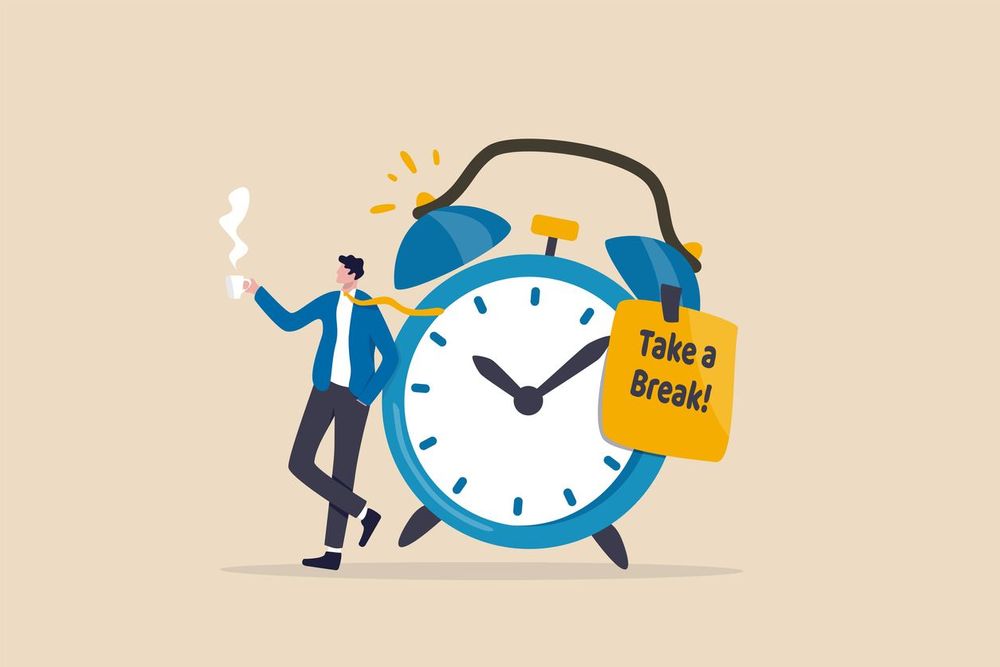
Even if you work Monday through Friday, you could bring your work home on the weekends. Giving up your weekends is something that many employees see as mandatory for career growth or success. But is working weekends really in your best interest? Find out why you should avoid working on weekends whenever possible.
You might think that sending a few emails or taking a phone call on the weekend is no big deal. However, your willingness to work so many weekends could come at a cost. When you take off on the weekends, you could have less job satisfaction and are much more likely to burnout.
If you want to do well at work, you need to relax on your weekends. It's impossible to work seven days a week, all day long. Without a break, you won't be as productive, sharp, or creative as you can. You risk reaching your maximum potential. Overall, your mental and physical health depends on you freeing up your weekends.
According to research, employees who try to work on the weekends are less productive than those who take off on the weekends. People who don't work on weekends have an opportunity to completely unwind. When they return to work, these individuals have a new perspective and fresh batteries. By taking weekends, you may be able to finish projects quickly or come up with new solutions to problems.
Your brain is a muscle, and just like every other muscle in your body, you need to rest it. If you don't give yourself a few hours to rest, your brain won't be at its best. You might struggle to focus on tasks or experience brain fog. For you to perform well, you need mental clarity. And that means taking the weekends off from work.
Your loved ones matter. If you're working all weekend, you can't possibly give your family or loved ones the attention they deserve. In fact, your work habits could be ruining your relationships. One of the keys to a good work-life balance is to free up your weekends and spend time with the people who matter.
There is a direct connection between your physical and mental health and your work habits. If you work too much, your health will suffer. Your mind and body shouldn't always be on-the-go. By working too much, you leave yourself vulnerable to heart disease, depression, and a long list of other ailments. Taking off on the weekend could give you enough rest to alleviate any symptoms of overworking. You might notice fewer headaches or less pain.
As a general rule, people in the US don't sleep enough. They get an average of 6.8 hours of sleep each night, which is less than what doctors recommend. Although many people aim for eight hours of sleep each night, that's not always possible. Workday stress may keep them from being able to unwind and sleep. If you can detach from work for the weekend, you might find it easier to sleep. At least you can get two decent nights of sleep each week.
Staring at a phone or laptop all day takes a toll on your eyes. If you don't take a break from your job, you might notice all of the following symptoms:
Headaches
Eyestrain
Poor eyesight
Blurry vision
Migraines
If you don't work on the weekends, you're less likely to strain your eyes. However, you should still be mindful of your activities. Try not to spend your weekends scrolling through social media or playing computer games. Instead, give your eyes a detox from screens.
Because taking time off improves your productivity, you could make your company more money by not working on weekends. Work-related stress and overtime cut out a huge cut of a company's profits. If you own a business, you should consider the consequences of having your employees work on weekends. Your employees are more likely to have heart disease, quit, and be less productive. In many ways, you can save money by encouraging free weekends.
While you now realize the importance of not working on weekends, you might not realize just how common it is for people to work six or seven days a week. Some companies are switching to a four-day work week model, but most still use a traditional work model. In the sales field, almost half of the employees work weekends and holidays.
There are also those individuals who need multiple jobs. When someone works two or more jobs, they're unlikely to have two days off. Usually, they work the second job on weekends. Whether you are forced to work weekends by your employer, or you need a second income, the consequences are the same.
With so many people working weekends, it's no surprise that healthcare is an issue. You may be suffering from symptoms of being overworked and not even realize it.
Some people only work weekends because they can't finish their work during the week. If this is your issue, then there's hope. You can follow a few simple tips to be more productive during the week:
Organize your email inbox
Put down your phone unless it's work-related
Set strict deadlines on projects
Ask for help when you need it
Create boundaries with your employer and coworkers
Evaluate your workday and consider how to streamline tasks
If none of the tips above help you, it could be time for a new job. Your mental and physical health is more important than anything else. No job should require you to work six or seven days a week, and it might be time for a new position. Before you suffer more, you should stay looking for a new job or career.
Lorem Ipsum is simply dummy text of the printing and typesetting industry. Lorem Ipsum has been.
